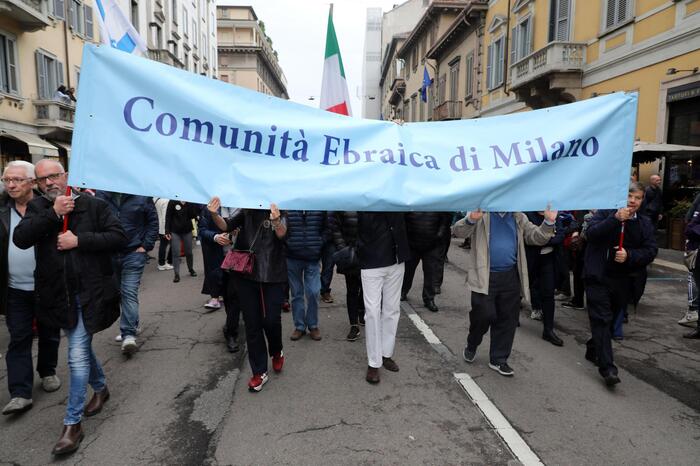Icon: enlarge
Photo: urbazon / iStockphoto / Getty Images
Every year the Leibniz Institute for the German Language (IDS) in Mannheim researches which neologisms have been added to the German language.
In other words, it looks which new words and linguistic influences have formed and which have also passed into everyday use.
Since March 2020, it has therefore also been documenting the linguistic changes that have resulted from the corona pandemic.
And in this special dictionary of corona neologisms there are now 1200 new word creations under observation.
Samira El Ouassil Right Arrow
Photo: Stefan Klüter
Born in Munich in 1984, is an actress and author.
In 2016 her book “The 100 Most Important Things” (with Timon Kaleyta and Martin Schlesinger) was published by Hatje Cantz Verlag.
In 2009 she was the candidate for chancellor of the »party«, which at that time was not allowed to vote in the federal elections.
She was recently awarded the Bert Donnepp Prize for media journalism for her media critical column »Wochenschau« (uebermedien.de).
1200 words - that is an enormous amount.
For comparison: for the entire decade, that is from 2010 to 2019, the institute registered a total of around 240 words, such as "Woke", "Gaslighting" or "Dickpic", the use of which is still being examined today in order to research the extent to which they are used establish themselves in the general language, whether they will become part of the German language as well as, for example, the word »mobile phone«.
The mass of Corona terms can of course be explained by the German way of creating compound words.
Because the possibility of combining a variety of words with a "Corona-" as a prefix can be upgraded, for example in the case of "Corona fatigue" or "Corona fear".
However, since only words are included in the collection that are verifiably used, the amount of these words used makes it clear that everything is apparently somehow a "Corona" version of everything, even the hairstyle.
Particularly noteworthy, however, are the words that capture even more specific unusual occurrences of the pandemic or certain phenomena, such as the term "hamsteritis" - or my current favorite word that I can relate to myself, especially when I read which one Uncomplicatedness in Israel people can apparently be immunized at the bar or at Ikea: the »vaccine envy«.
If you look at this corona vocabulary list, in addition to a number of terms that make use of war rhetoric, an atmospheric constant is noticeable: the words often sound very - German, for lack of a better description.
»Double voluntariness«, »Pre-vaccination supervisors«, »distance snake«, »work quarantine«, »blue voyage« (these are short cruises on which corona-related reasons do not go ashore), »en route cleaner« - such linguistic pearls convey in their semantics and in that what they are trying to capture, a deeper truth about what is currently holding German society together at its core;
And they may also offer an answer to the question of why precisely in the bureaucratic organization and logistics of the pandemic - i.e. in those disciplines that a tidy and tidy country like Germany would have to master with a snap - this just clanking fails: we see here the word creation chain of a management company, which works better in controlling, regulating, documenting, i.e. bureaucratising than in acting.
Something historical resonates in these neologisms, almost something Bismarckian, perhaps something that would like to legitimize itself linguistically through conscientious self-affirmation (I love the compound!).
These words tell of duties, the will to plan and protocols.
They report a pedantic organization, which in times of stability ensures even more stability in order to maintain the status quo.
"Distance check", "cash register enclosure", "cough hygiene", "remotely monitored exam", "traffic lights", "collateral benefit" are the vocabulary of a society that should actually navigate through a pandemic much better than it does.
And maybe this is exactly where the problem lies: This solid administration, which Germany also prides itself on with a certain degree of pride in order and thus likes to flirt abroad, is completely incompatible with a fluid crisis situation that demands immediate adjustment by force.
Perhaps the most vivid artifact of precisely this discrepancy is the fax.
It is paper-turned, German basic trust in the functionality of official processes.
The fax is, as the Institut für Zeitgenossenschaft IFZ once aptly put it, primarily "to check whether there are faxes in other locations as well."
In the pandemic, fax machines are now in their reliable provenance exactly the ridiculous opposite of what is necessary in a crisis: the ability to improvise.
If you still talk about faxing, you can't think of a Corona app.
Precisely what should have gotten German society through the crisis best, its routine with present administration, slows down processes and produces errors such as delays: whether with vaccination sequences, vaccine availability logistics, self-test approval procedures, distribution of counterfeit-proof ones, especially in the Federal Printing Office FFP2 mask vouchers printed on federal printing paper for collection at the pharmacy.
It is not due to the wrongdoing of some, it is not the unavailability of knowledge and science, we stumble upon the most trivial moment of any change: the organization of this adaptation.
These are disasters of a huge, democratic cargo ship, which was too well on course with its fax machines to suddenly become manoeuvrable before a third wave.
And that's why, in my opinion, Germany was "in a very good position at the beginning", because it was precisely this robust mass of apparatus that was able to absorb a lot at the beginning of the crisis.
But now, in the middle of the entropy, now that reality is shedding its skin faster and faster, this previously system-stabilizing inertia endangers us.
In an exceptional situation that primarily requires flexibility, the adaptability of a regulatory agency reaches its limits due to its own organization.
In this almost poetic list of words, one sees, with the 1200 neologisms, perfectly illustrated how a structural advantage became a disadvantage: the government
administers
solutions, it
does
not solve problems.
Germany is currently a fax machine.
Icon: The mirror












